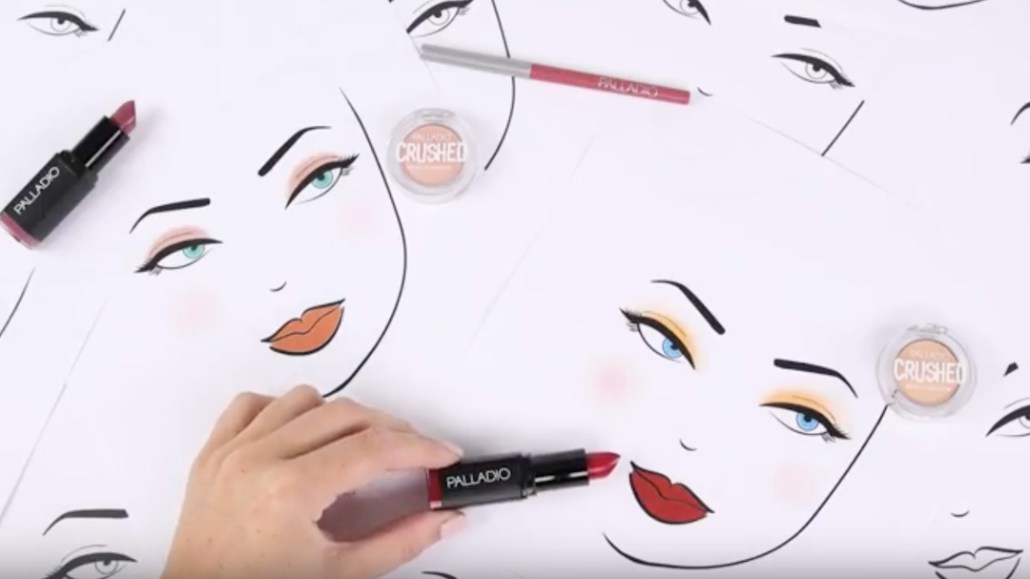Secure your place at the Digiday Media Buying Summit in Nashville, March 2-4
How Palladio Beauty grows its e-commerce business while curbing its reliance on Amazon

When Shawn Haynes joined Palladio Beauty as CEO in January, his top priority was to expand its distribution through e-commerce companies. At the time, the makeup company sold its products through five online platforms in addition to its own website.
Nine months later, that number of distributors has doubled to include Amazon, Forever 21, Sally Beauty, Ricky’s NYC, Hush and, starting Sept. 9, e-commerce site Zulily. Palladio wouldn’t share specific data, but Haynes said revenue tripled this year due to its increased e-commerce presence and emphasis on SEO, online advertising and retargeting.
“E-commerce is a top priority for Palladio, given the immense potential for growth there,” said Haynes. “We are just starting to see traction on those platforms by putting strong initiatives behind them.”
Amazon is still the biggest source of online sales for Palladio, and to drive shoppers to buy there, it’s ramped up ad spending by an unspecified amount on Amazon. Haynes said the relationship is strong but noted that resellers will sometimes discount Palladio’s products. “We are dealing with a very formidable retailer who has carved out a significant share of all the categories they are now playing in,” said Haynes of Amazon.
While Amazon is the biggest source of sales, Palladio tries to balance its e-commerce sources. That’s why the bulk of its online advertising goes toward driving traffic to Palladio’s own site, and pricing and supply across its partner sites remain consistent. For instance, Palladio sells the same number of products on Amazon that it will sell on Zulily.
“Some companies focus on building brands strictly on Amazon alone, and that’s not our plan,” said Haynes. “We are looking to grow Amazon as a retail partner, but we are also looking to grow our own e-commerce website as well. Ultimately, the goal is to give the consumer a consistent end result.”
More in Marketing

WTF are tokens?
When someone sends a prompt or receives a response, the system breaks language into small segments. These fragments are tokens.

AI is changing how retailers select tech partners
The quick rise of artificial intelligence-powered tools has reshaped retailers’ process of selecting technology partners for anything from marketing to supply chain to merchandising.

YouTube’s upmarket TV push still runs on mid-funnel DNA
YouTube is balancing wanting to be premium TV, the short-form powerhouse and a creator economy engine all at once.








